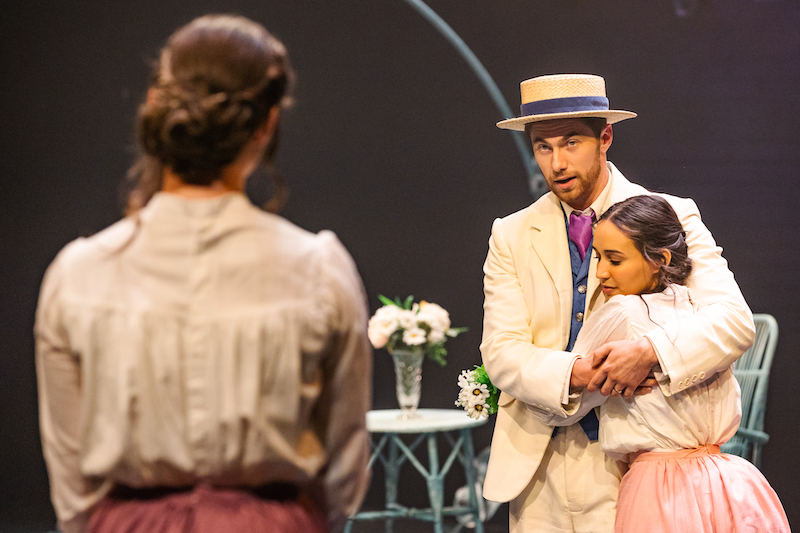Ellida, a new adaptation of Ibsen’s The Lady from the Sea, is an ideal vehicle for WAAPA’s third-year acting students, David Zampatti says, and they tackle it with verve and skill.
Ibsen explores freedom to choose
26 March 2021
- Reading time • 5 minutesTheatre
More like this
- The A to Zed of reviewers | Vale David Zampatti
- Just what the doctor ordered
- Lifting the weight of the world
Ellida, Western Australian Academy of Performing Arts (WAAPA) ·
Roundhouse Theatre, 25 March, 2021 ·
Ellida is an adaptation of Henrik Ibsen’s play, The Lady from the Sea, which he wrote in 1888, just before he returned to his native Norway after a quarter-century of self-imposed exile in Italy and Germany.
Sandwiched as it was between his most enduring works, A Doll’s House and The Wild Duck, Hedda Gabler and The Master Builder, it has never been highly regarded, and, in truth, the reasons for its relative obscurity are easy to see.
The issues of societies transitioning into modernity and, especially, the position of women in them are there as they are in his greatest plays. But despite the psychological realism that made his works the model for playwrights from Strindberg and Chekhov to Miller, O’Neill and beyond, The Lady from the Sea’s comparative two-dimensionality and its sudden and melodramatic denouement consign it to the second rank of Ibsen’s work.
It is, however, a made-to-order piece for WAAPA’s graduating class of acting students, and the eight-strong cast hoe into it with considerable verve and skill. The compact, straightforward dialogue in Australian playwright May-Brit Akerholt’s adaptation, renamed Ellida for, I guess, marketing purposes, helps them, as does Will O’Mahony’s uncluttered, shrewd direction. And happily, Alkerholt doesn’t play around with the original play’s place (a small mid-Norwegian fjord town) or time (late 19th century), the plot or the characters.
Ellida (Zoë Taylor-Morgan) is the daughter of a lighthouse-keeper and the second wife of the town’s widower doctor, Wangel (Mitchell Tharle). She feels trapped and isolated in his family, with daughters Bolette (Emelia Corlett) and Hilde (Madeline Dona) from his first wife.
The girls have suitors: Bolette’s is her former professor, Arnholm (Gulliver McGrath), and Hilde’s is a sickly artist, Lyngstrand (Sebastian Belmont). Their dalliances provide all the play’s humour and many of its insights into the gender politics of the time and place.

In a strong and well-balanced cast (which includes Harrison Pearse in a couple of minor roles), McGrath’s assured and lively performance makes much more of Arnholm than the script would suggest, and Taylor-Morgan has both the beauty and fragility Ellida requires. Dona’s Hilde is sharp, bright and a little dangerous – Ibsen famously brings the character back in The Master Builder, where that danger becomes much deeper and darker. I look forward to seeing Dona take that role some time.
Ellida is haunted by the death of her infant son, and by the memory of a previous attachment to a mysterious and dangerous sailor (George Vickers-Willis), whose sudden reappearance is the catalyst for the play’s crisis, and its examination of the nuances of freedom.
Unlike Nora in A Doll’s House, Ellida discovers that freedom can simply be the ability to choose rather than necessarily the choice you make. It’s not so much the going that matters, it’s being able to go. It’s not yes or no so much as the freedom to choose between them that’s important.
It’s a lesson that still has to be learned over a century later.
Ellida runs at the Roundhouse Theatre at WAAPA, Edith Cowan University, until 31 March, 2021.
Pictured top: Ellida (Zoë Taylor-Morgan) and Arnholm (Gulliver McGrath) talk about love and marriage in ‘Ellida’. Photo: Stephen Heath
Like what you're reading? Support Seesaw.





